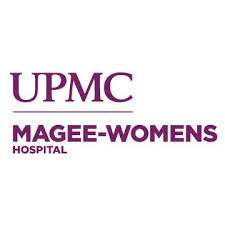A women-centered treatment program for pregnant and postpartum women with opioid use disorder in Pittsburgh, PA
The Pregnancy Recovery Center (PRC), through the Magee-Women's Hospital, is an outpatient program offering pregnant women comprehensive care for opioid use disorder (OUD) with a goal of expanding the accessibility and availability of buprenorphine for this population.
Started in 2014, the PRC consists of ob/gyn physicians licensed to prescribe buprenorphine, a full-time nurse with addiction medicine training, and a full-time social worker. PRC provides office-based buprenorphine treatment and the following women-centered services to pregnant and postpartum women:
- Prenatal and postpartum care
- Housing and transportation assistance
- Breastfeeding education and support
- Parental skills training and childcare
- Trauma-informed care
- Family planning and behavioral health counseling (both individually and in a group setting)
Patients in the PRC receive comprehensive treatment and medicine throughout their pregnancy. In the postpartum period, patients are connected with a community provider to continue medications for opioid use disorder (MOUD). Infants born to mothers enrolled in the program remain with their mothers whenever possible.









